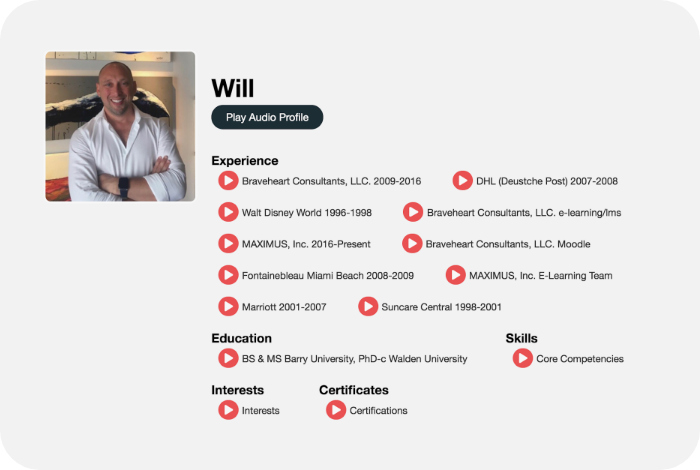In a world where traditional job interviews often seem out of touch with the realities of Generation Z, the integration of Sound Branch with voice notes and audio CVs could herald a transformative shift in how these young aspirants navigate the daunting landscape of job hunting. Imagine a scenario where instead of the stilted, often superficial, face-to-face exchanges, candidates can express their personalities and professional capabilities through a medium that is second nature to them: digital audio.
This approach aligns seamlessly with the digital native identity of Gen Z, a generation that has grown up in an era of podcasts, TikToks, and voice assistants. For them, communicating via audio is not just convenient, it’s intuitive. By leveraging audio-based platforms in job interviews, we’re not just accommodating a preference; we’re tapping into a fundamental aspect of their identity.
Consider the case of Beth Green, a 26-year-old from New York, who struggled with traditional interviews, a common sentiment among her peers. In a voice-based interview, Beth might have avoided the anxiety and disconnection she experienced. Voice notes offer a less intimidating platform, allowing candidates to think through their responses and present themselves in a more authentic and relaxed manner.
Furthermore, audio CVs provide a richer, more nuanced representation of a candidate’s abilities and character than a traditional resume. They allow Gen Z applicants to showcase their communication skills, personality, and enthusiasm in a way that a written document simply cannot. This is particularly beneficial for roles that demand strong verbal communication or creative thinking.
The shift to audio-based hiring processes also aligns with Gen Z’s quest for authenticity and personal connection in the workplace. Traditional job interviews often feel like a performance, where both the interviewer and interviewee play scripted roles. In contrast, audio formats can foster a more genuine dialogue, a true exchange of ideas and values, which is deeply important to this generation.
However, this is not to suggest that transitioning to audio-based interviews is a panacea for all the challenges faced by Gen Z job seekers. It’s important to recognize that this approach, while innovative, must be part of a broader strategy that addresses the systemic issues in the job market and hiring practices. This includes reevaluating interview questions to focus on relevant skills, creating more inclusive hiring practices, and providing support and training for young job seekers.
Incorporating Sound Branch with voice notes and audio CVs into the hiring process could be a significant step forward in aligning with the preferences and strengths of Gen Z. It’s a move towards a more empathetic, inclusive, and effective approach to recruitment, one that recognizes and harnesses the unique qualities of this digitally savvy generation.

